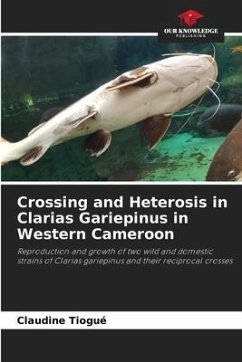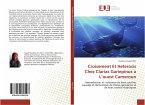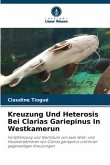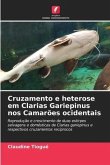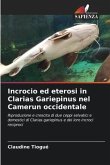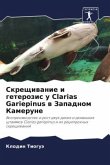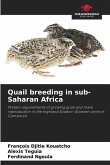The African catfish Clarias gariepinus is the most common species raised in African fish farming. In association or in monoculture, it is considered as a future fish for farming thanks to its hardiness, its omnivorous diet, its fast growth and its highly appreciated flesh. In Cameroon, the same strain of this catfish is very often used for several generations for reproduction. However, in fish farming, the prolonged use of the same strain can lead to inbreeding and consequently to the genetic degeneration of the population which can deeply affect the fish farming yields. In order to face such a situation, the genetic heritage of fish strains can be renewed through the evaluation and use of wild strains of fish with fish farming potential. Therefore, the general objective of the present work is to identify wild strains of Clarias gariepinus that can contribute to the diversification of the breeding germplasm. In this study, positive values of survival and growth heterosis were obtained for the tested strains.
Hinweis: Dieser Artikel kann nur an eine deutsche Lieferadresse ausgeliefert werden.
Hinweis: Dieser Artikel kann nur an eine deutsche Lieferadresse ausgeliefert werden.

